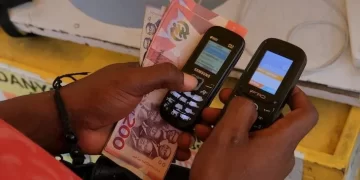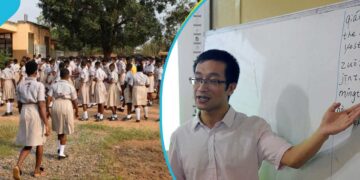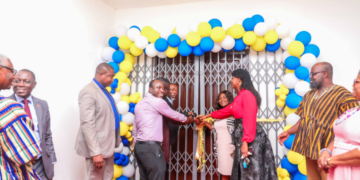An Associate Professor with the Department of Biomedical Engineering at the University of Ghana, Professor Elsie Effah Kaufmann has reiterated the need to make the Ghanaian educational system more practical than theoretical.
She believes should this be done, it will aid in bridging the gap between theoretical and practical knowledge among students in the country’s educational sector.
Professor Kaufmann noted that it is important we work into our education the things we expect. According to her, “we should have some outcome that we are looking for and do the activities that will lead us to the outcome.”
According to her that producing practical experiences in our classrooms requires collaboration between teachers and learners.
“…every teacher when you go to your class have some outcomes in mind you are trying to achieve. Provide the experiences that will get the students to do the things that we are all looking for-that critical thinking student, that student who can do something with the education they have, and let’s work together, ” she suggested.
She adds that for students to produce practical knowledge they need to be assessed more practically.
Read Also: SRC of UCC institutes Food Bank Initiative, Stress-free Healthcare project for students
These recommendations come on the back of the 2021 National Science and Maths Quiz (NSMQ) finalists’ inability to apply their knowledge to reshuffle the parts of a dummy digestive system during a visit to the Sharjah Museum in Dubai although they demonstrated their knowledge excellently during the quiz last year.
Speaking in an interview on ATL FM’s ATLANTIC WAVE, Professor Elsie Kaufmann implored teachers and other relevant stakeholders in Ghana’s education system to do their bits in ensuring that practical learning is incorporated into all classroom subjects.
She urged parents to expect not just book knowledge from their children but the ability of the children to do what they have passion for.
Professor Elsie Kaufmann also indicated that students should not only be interested in memorization while in school but they should start thinking of ways in which they might make a difference.
She, however, appeals to governments and school authorities to put in reward systems that will encourage educators to do the right thing.
Source: Emmanuella Ama Gyamfi/ATLFMNEWS



























